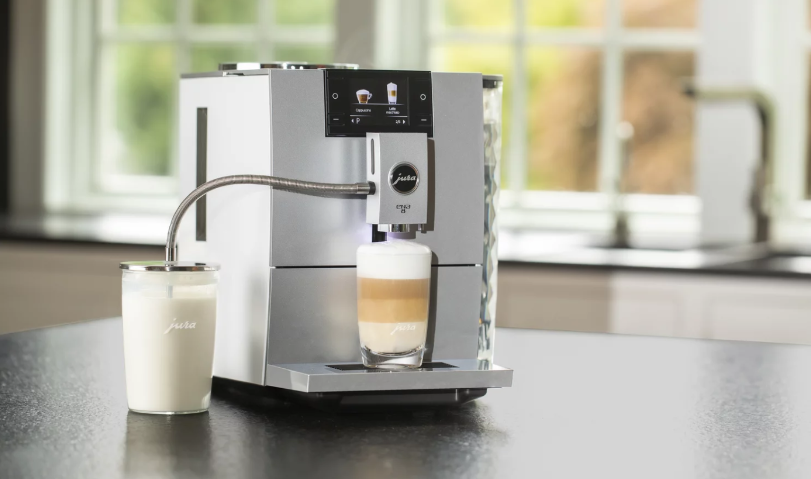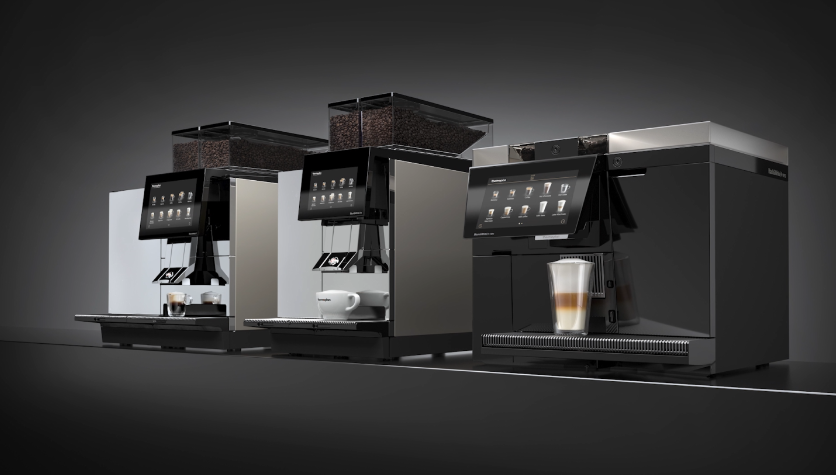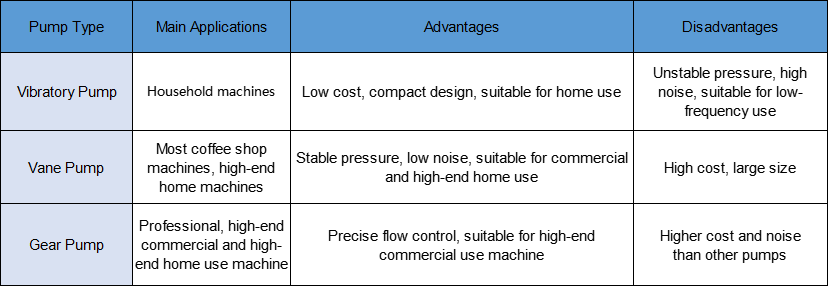
Pump, the core power system of coffee machine, is crucial for ensuring the smooth flow of water and milk during the brewing process. In a coffee machine, the water pump is primarily responsible for extracting coffee, while milk pumps are mainly used in automatic milk frothing systems to draw milk from storage tanks, heat it, and create foam.These two types of pumps have different application requirements in various coffee machine models, with common pump types including vibration pumps, rotary vane pumps, and gear pumps. Below, we will analyze the advantages and disadvantages of different pumps in the context of home and commercial coffee machines.
Household Coffee Machines

Household coffee machines are divided into regular and high-end types based on user needs. Their pump requirements vary, with regular models focusing on price and basic functionality, while high-end models prioritize performance and coffee taste.
1.1 Standard Household Coffee Machines
Water Pump: Vibratory Pump
Advantages
Low Cost:Vibratory pumps are relatively inexpensive, suitable for budget-conscious home users.
Compact Design:Vibratory pumps are small in size and take up little space, fitting well into the compact design of household coffee machines.
Disadvantages
Unstable Pressure: The pressure output of vibratory pumps fluctuates, potentially leading to inconsistent coffee extraction quality.
High Noise: Vibratory pumps produce noticeable noise during operation, affecting the user experience.
Milk Pump: Manual or Basic Automatic System
Advantages
Low Cost: Most ordinary household coffee machines use manual steam wands or basic automatic milk frothing systems, which are cost-effective.
Disadvantages
Inconsistent Milk Foam Quality: Manual systems rely on user operation, easily resulting in unstable milk foam quality.
High-End Household Coffee Machines
Designed for family users who pursue coffee quality and experience, high-end household coffee machines typically use better-performing pumps, such as vane pumps or high-performance vibratory pumps, and are equipped with advanced automatic milk frothing systems.
Water Pump: Vane Pump
Advantages
Stable Pressure Output: Vane pumps provide consistent and stable pressure, ensuring uniform coffee extraction quality each time.
Low Noise:Compared to vibratory pumps, vane pumps operate with less noise, enhancing the user experience.
Disadvantages
High Cost: Vane pumps are more expensive, increasing the overall cost of the coffee machine.
Larger Size: Vane pumps are bulky, occupy more space, and increase design complexity.
Milk Pump: Coffee Machine Milk Pump (Gear Pump)
Advantages
High-end household machines are equipped with automatic milk frothing systems containing adjustable-speed milk pumps, ensuring evenly textured and delicate milk foam for milk-based drinks like lattes and cappuccinos.
Disadvantages
Complex Maintenance: Automatic milk frothing systems require regular deep cleaning to prevent milk residue buildup.
Commercial Coffee Machines

Thermoplan Commercial Coffee Machine
The pump system design of commercial coffee machines is intended to handle high-intensity work demands, divided into regular commercial automatic coffee machines and high-end commercial automatic coffee machines. Commercial machine pumps need higher durability, efficiency, and stability.
Standard Commercial Automatic Coffee Machines
Standard commercial automatic coffee machines are commonly used in small to medium-sized cafes or dining establishments. To balance cost and performance, they often use vane pumps or high-durability vibratory pumps.
Water Pump: Vane Pump
Advantages
Efficient and Stable: Vane pumps provide stable pressure output for long periods in commercial settings, suitable for continuous high-frequency coffee production.
Strong Durability: Vane pumps have a long lifespan and can withstand the production demands of numerous orders.
Disadvantages
Higher Cost: Compared to household vibratory pumps, vane pumps are more expensive but more economically beneficial in long-term use.
Milk Pump: Coffee Machine Milk Pump (Gear Pump)
Advantages
High Consistency: Commercial automatic milk frothing systems with adjustable-speed milk pumps ensure stable milk foam quality, reducing the impact of operator skill differences on product quality.
Disadvantages
Complex Equipment: Commercial milk frothing systems have complex structures and high maintenance costs, requiring regular maintenance by professionals.
High-End Commercial Automatic Coffee Machines
High-end commercial automatic coffee machines are often used in high-end hotels, boutique cafes, and other venues requiring extremely high efficiency and stability. They commonly use vane pumps and gear pumps, equipped with advanced milk frothing systems.
Water Pump: High-Performance Vane Pump or Gear Pump
Advantages
Extremely High Stability: High-performance vane pumps or gear pumps excel in high-intensity commercial use scenarios, providing consistent high pressure.
Precise Control: Gear pumps can precisely control flow rates, suitable for making high-end coffee, enhancing coffee taste and texture.
Disadvantages
Expensive: These pump systems are costly, suitable for high-end commercial venues with sufficient budgets.
High Maintenance Requirements: High-end pump systems require regular maintenance to ensure long-term efficient operation.
Milk Pump: Advanced Intelligent Milk Frothing System
Advantages
Intelligent Adjustment: Advanced milk frothing systems can automatically adjust the thickness and temperature of milk foam based on different beverage needs, providing a perfect user experience.
Fast and Efficient: Suitable for handling large order demands during peak times.
Disadvantages
Complex and Costly Maintenance: The cleaning and maintenance of advanced systems are complex, requiring ensuring no milk residue blocks the system.

Summary of the advantages and disadvantages of different pumps
